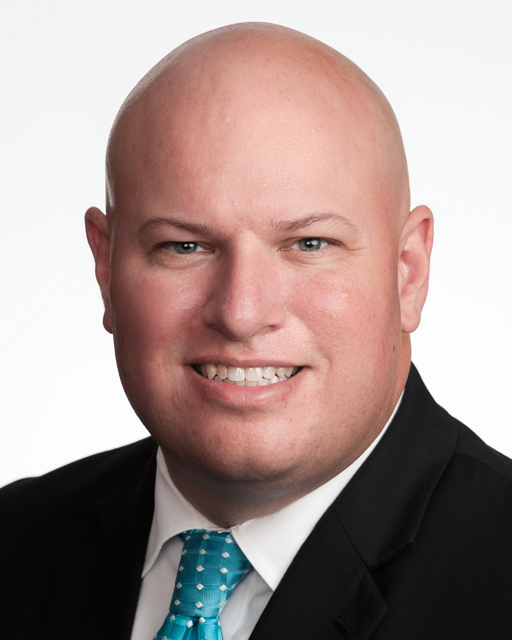The State of Ohio is currently considering legislation that would require that nearly all police body camera video be subject to public records disclosure. The legislation in question, Substitute House Bill 425[1], would designate police body camera video as records subject to disclosure, unless the recording depicts a variety of enumerated exceptions largely related to privacy. The bill appears to have bipartisan support and appears headed toward a vote in both chambers of the legislature. Supporters of the legislation claim that this bill could become a national model for other states to enact to address both concerns over privacy and the public’s desire to have first-hand access to the work of law enforcement.
Throughout the country, a majority of states still do not have legislation clearly defining whether or to what extent police body camera video should be deemed a public record. There are, of course, outliers. Some states, like South Carolina, have concluded none of the video generated from police body cams should be subject to public records law. There are other states, like Nevada, on the opposite end of the spectrum, providing little or no exceptions to the premise that all body cam video is subject to public records law. However, a majority of states have still refused to adopt legislation regarding how police body cameras are to be addressed under public record laws.
In those states where legislation has not clearly addressed the intersection of body cams and public record law, there is, not surprisingly, more litigation over disclosure. For example, New York Judge Ann Marie Taddeo ruled that the City of Rochester’s policy on redaction and disclosure of body cam video violated New York’s public record law, which does not specifically address body cam video. The City allegedly maintained a policy that called for the wholesale redaction of the images of police officers and the complete masking of the voices of officers. When a member of the Rochester media requested a copy of body cam video related to an incident, the video that was produced was allegedly blurred and without sound. Ultimately, the court concluded that the blanket policy was inconsistent with state law and that any redactions must have individualized support.
The litigation (and outcome) that the City of Rochester faced is becoming more and more common. In states that have not adopted legislation addressing the public record implications of body cameras, law enforcement agencies are left to do their best to develop policies that are consistent with antiquated public record laws that were adopted when public records only existed on paper. It is clear that in at least some scenarios, body camera video does constitute a public record subject to disclosure. However, it’s just as clear that there are some proper limitations on the content of video that is subject to public disclosure. Perhaps the legislation in Ohio will indeed become a national model, but regardless, any legislative guidance specific to body cameras is a welcome alternative to attempting to apply 21st century technology to public record laws that often times originate from the 19th century.
[1] It is worth noting that despite the Bill’s title being “Declare police body camera recordings not to be public records,” the substitute bill actually establishes that the recordings are in fact public records, subject to enumerated exceptions.

By: Samuel C. Hall Jr.
Director/Shareholder, Crivello Carlson, S.C.
Summary of Qualifications
Samuel C. Hall, Jr. is a shareholder at Crivello Carlson, S.C. He received his bachelor’s degree and law degree from Marquette University. During law school, Sam was a St. Thomas More Scholar for three years and was a member of the Marquette Sports Law Review. His principal practice focuses on civil rights litigation and appellate practice.
Sam has successfully defended many government officials, law enforcement officers and municipalities in cases involving alleged civil rights violations. Sam is admitted to practice and has defended law enforcement in Wisconsin, Illinois and New York state courts, the United States Supreme Court, the Third Circuit Court of Appeals, the Fifth Circuit Court of Appeals, the Seventh Circuit Court of Appeals and federal district courts in Wisconsin, Illinois, New York, Texas and Pennsylvania.
Sam received “AV-Preeminent” peer and judicial ratings by Martindale-Hubbell (which is the highest possible rating) and has also been selected for the Wisconsin Super Lawyers Rising Stars list several times for his civil rights defense and appellate work. Based on his experience in defending law enforcement officers, Sam has been a keynote speaker and lecturer for various law enforcement organizations and has also served as an instructor for a Master’s level course offered by the University of Wisconsin for law enforcement command staff.
Responsibilities
Sam is primarily responsible for litigating cases on behalf of government officials, including law enforcement officers. Beyond litigation, Sam is also responsible for conducting policy reviews, drafting policies and providing analysis and recommendations related to local government functions.
Business Experience
Sam is an equity shareholder at the law firm of Crivello Carlson, where he works primarily from the firm’s Milwaukee and Chicago offices. He is currently the chairman of the firm’s finance and compensation committee. As an attorney primarily representing local governments, Sam has worked collaboratively with risk management officials to provide proactive direction for risk management throughout government. Specifically within law enforcement, Sam has worked with officials to identify aspects of policies that present risk and he has worked to develop new policies and training to mitigate risk.
Professional Affiliations
American Bar Association, Wisconsin Bar Association, Illinois State Bar Association, New York Bar Association, National Native American Bar Association
Seventh Circuit Court of Appeals Bar Association, Eastern District of Wisconsin Bar Association
The Federalist Society
National Academy of Recording Arts & Sciences
National Eagle Scouts Association
Thoroughbred Owners & Breeders Association
Education
B.A., Marquette University
J.D., Marquette University Law School



